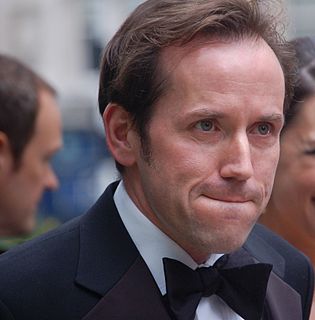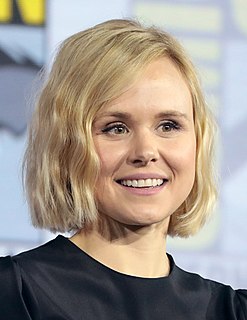A Quote by Ben Miller
Comedy's about things the way they are. It's about the world as it is, not the world as we would like it to be, and science is the same, really.
Related Quotes
One of the great things about this cast is that we've been able to take actors of relatively the same age group that would never usually meet. You know, like bridging the comedy/drama world that for some reason casting directors never really want to bridge or you get into one community and that's kind of it.
For ten years, I wrote regular columns about science for women's magazines, and to my knowledge I'm the only person in the world who can say that. This has no kudos in either the science-writing world or the academic world, but it's one of the most challenging things I've ever done. It's much harder to write about cosmology for a magazine like Vogue than for the New York Times, which I've also written for, because you have to imagine that on the page opposite there'll be an advertisement for eyeliner, or an article about the latest trends in skirt length.
I agree that science is the best way of understanding the natural world, and therefore that we have reason to believe what the best science tells us about the objects in that world and the relations between them. But this does not mean that the natural world is the only thing we can have true beliefs about. The status of material objects as things that are "real" is a matter of their having physical properties, such as weight, solidity, and spatio-temporal location. In order to be real, such things need not have, in addition to these properties, some further kind of metaphysical existence.
All of my movies are about how I wish the world would work. I've made very few movies about how the world worked. I could name them on one and a half hands, about how my movies have been very reflective of how the world was exactly. A lot of my movies are really about the way I wish the world was, and that's what this whole art form is all about. It's an interpretive art form.
Religion and science have nothing to do with each other, they're about different things, science is about the way the world works and religion is about [...] miracles. [...] And in any case, if you ask most ordinary people in church or in a mosque why they believe, it's almost certainly got something to do with the belief that God does wonderful things, that God intervenes, that God heals the sick, that God answers prayers, God forgives sins.
I would teach the world that science is the best way to understand the world and that for any set of observations, there is only one correct explanation. Also, science is value-free, as it explains the world as it is. Ethical issues arise only when science is applied to technology - from medicine to industry.
Science fiction isn't just thinking about the world out there. It's also thinking about how that world might be - a particularly important exercise for those who are oppressed, because if they're going to change the world we live in, they - and all of us - have to be able to think about a world that works differently.
Science fiction isn’t just thinking about the world out there. It’s also thinking about how that world might be—a particularly important exercise for those who are oppressed, because if they’re going to change the world we live in, they—and all of us—have to be able to think about a world that works differently.
Science isn't just about solving this or that puzzle. It's about understanding how the world works: the whole world from the vastness of the cosmos to the particularity of an individual human life. It's worth thinking about how all the different ways we have to talk about the world manage to fit together.

































